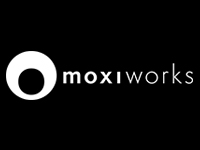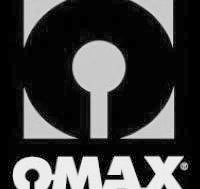 *I’ve written about salary negotiations before here. I’m not against salary discussions, I actually believe they are very important. So important, in fact, that you should talk money early and often with your recruiter. I get a lot of questions from friends and family about how much they should ask for, or how to counter an offer. I willingly share my thoughts and recently helped a friend get a pretty significant increase over her current salary AND a slightly higher bump to the offer she was originally given. I’m not against salary negotiations. I do, however, have a significant aversion to bullshit.
*I’ve written about salary negotiations before here. I’m not against salary discussions, I actually believe they are very important. So important, in fact, that you should talk money early and often with your recruiter. I get a lot of questions from friends and family about how much they should ask for, or how to counter an offer. I willingly share my thoughts and recently helped a friend get a pretty significant increase over her current salary AND a slightly higher bump to the offer she was originally given. I’m not against salary negotiations. I do, however, have a significant aversion to bullshit.
I don’t believe in negotiating just because you can.
I reject the idea that candidates leave money on the table if they take the first offer.
That’s what I did.
My good buddy and mentor HR Nasty wrote an EXCELLENT must read post about the reality of lowball offers. Simply put, we just don’t make them. Instead of trying to recreate the brilliant article that he’s already put out there, I decided to share my story. A little history – most of you know I joined Microsoft earlier this year. I’ve had a solid run in recruiting, starting in agency and moving to the corporate side a few years ago. I’ve always had a “bucket list” of sorts, a handful of companies I’d like to work for before I die. Even though I loved my job, as I told my husband – “when Microsoft calls YOU ANSWER”. And I’m so glad I did. Just because I’m a recruiter, doesn’t mean I’m exempt from the recruiting process. I had to apply. I went through a recruiter screen followed by an interview loop. I received an offer. I took it.
That’s right – the professional recruiter who some would say should know better took the first offer she was given, and liked it. Here’s why –
I did my homework. I knew going into the process where I “should” be. I talked with other people in similar places in their careers at a lot of different companies. There were no surprises and I never felt that my expectations were unreasonable. A lot of information you’ll find can be somewhat suspect, but it’s still worth at least checking out. The most important thing, at least for me, is that I felt prepared.
I trusted my recruiter. We talked about money pretty early in the process. He knew not only where I was in my current role, but also where I wanted to get to. We had a multiple honest and transparent conversations. I felt very comfortable that, even though my recruiter worked for the company, he cared enough about me and my career goals to make sure I was treated fairly.
I got a solid offer. Remember all that homework I did, and the conversations with my recruiter? Well they paid off, since the offer I got exceeded my expectations. I had a number in mind, and all in, the number was more than met. What more can you ask for?
I was honest with my trusted recruiter. This may not be an issue for the average job seeker, but as a recruiter, it immediately came to my mind. Was I supposed to negotiate? I told the recruiter that I was thrilled with the offer and wanted to accept – BUT – I had to be sure. As a recruiter, was I being tested? Did my new boss expect me to counter? My new recruiter BFF only laughed at me a little and assured me that was not the case. He felt (as I do, when I make an offer) that it was a fair package taking into consideration all the relevant factors. I would have to be an idiot not to accept it immediately.
I am not an idiot.
I jumped on the opportunity and never looked back. I’ve never once wondered if I left money on the table. By accepting a fair and competitive offer at the first pass, I saved everyone a lot of hassle. Now I certainly don’t know all the backstory conversations my recruiter and boss had during my offer process, but I can tell you how it feels as the recruiter making offers. There’s not much I find more frustrating than negotiating with a hiring manager, nailing down a solid offer and delivering it to the candidate – only to have to go BACK to the hiring manager because the candidate is under the (incorrect) assumption that we’re intentionally low-balling. No one wins at that game, and I hate to lose. There are times when negotiating makes sense – in the case of my friend, she was significantly underpaid (one of the reasons she was looking) and was worth, in my opinion, more than the offer she ended up accepting. By taking my advice and stating her case succinctly, professionally, and with data to back it up, she was able to get closer to her target number. She happily accepted and when we did the math, realized just what a huge percentage jump she made. It was a great end to a tricky situation and I’m glad I was able to advise her on smart salary negotiations. It’s just not always necessary.
A huge shout out to Amy Ala for contributing this piece. Check out Amy’s blog to get more awesome recruiter insight.
***This blog originally posted to www.hrnasty.com. Follow him at @HR_Nasty**


















